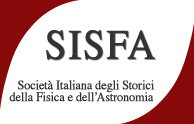Speaker
Description
The thesis I will present concern the new idea of Large Scale in cosmology due to Hubble's discovery. I propose that the hypothesis of a larger universe was probably a cultural need born not only in astrophysics environment, but already present in the air and stimulated by the social events of that period. I will make an "investigation" of some of them, focusing mainly on the general political situation, on the hint of an imminent even more devastating world conflict and on the crisis of values in art, reflection of the uncertain socio-political conditions at the origin of the Second World War. In this phase, the concept of "big" quickly became "bigger": the economy ceased to be an internal aspect of a given country, becoming a factor binding increasingly distant nations; the previous colonial policy of expanding borders led to the expansion of clashes of interests from a European to a global scale. The "Great War" was truly great and was greater than all previous conflicts: almost 70 million people lived the experience of the trenches and the return home of the survivors brought about unprecedented problems of social reorganization. American industrial production inflated the stock markets and its collapse a few years later caused a vortex dragging with it all the countries economically linked to United States. I will try to show how, in this climate of new social crisis, it was possible, if not even necessary, to question also the vision of a universe hitherto considered much narrower.

